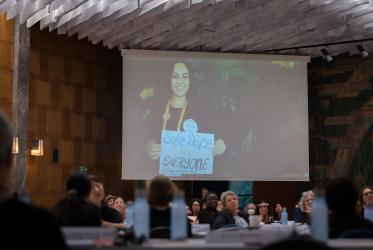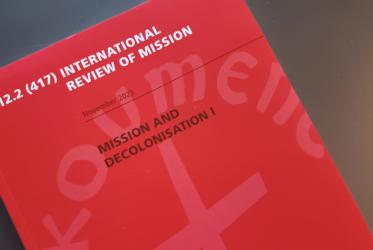The latest issue of The Ecumenical Review, the quarterly journal of the World Council of Churches (WCC), focuses on the Pan-African Women’s Ecumenical Empowerment Network (PAWEEN), a project of the WCC’s programme on Ecumenical Theological Education (ETE).
Formally established as a network in 2015, PAWEEN aims to celebrate, commemorate, and build upon the legacy of Pan‐African women in the ecumenical movement.
Under the title “Pan‐African Women of Faith and a Vision of Inclusive Global Theological Education,” this issue of The Ecumenical Review explores the role of PAWEEN in transformative theological education.
Contributions are structured thematically: building on the legacy of female theological educators; relating the biblical narrative with Pan-African female stories; and interrogating the past and charting a course of the future of theological education.
In their opening editorial, guest editors Amélé Adamavi-Aho Ekué and Angelique Walker-Smith note how the issue highlights “the journey and wisdom of pioneering women theological educators, who hold key positions in the ecumenical movement and who, through their academic and ecclesial contribution and positions of leadership, have paved the way for and with others.
Adamavi-Aho Ekué is the new academic dean of the Geneva-based ethics network Globethics.net, after serving at the WCC as professor of ecumenical ethics at the Ecumenical Institute Bossey and as programme executive for ETE.
Walker‐Smith is senior associate for Pan African and Orthodox Church Engagement at Bread for the World in Washington, DC, ecumenical representative of the National Baptist Convention USA, and a member of the central committee of the World Council of Churches.
PAWEEN, writes WCC central committee moderator Agnes Abuom in a foreword, “seeks to lift up the stories of Pan‐African women's lives and experiences, link these stories to other collective experiences of invisibility and marginalization, and consider how these experiences provide and shape opportunities for new and renewed models and expressions in theological education.”
The year 2019, she notes, marks the Quad‐Centennial of the transatlantic voyage of enslaved African peoples from Angola to the United States.
“As an African and as a moderator of the central committee of the World Council of Churches, I am also aware that we need to continue to find appropriate entry points with our brothers and sisters of African descent to discern how we move together in the future following this history of lament and to embrace hope,” Abuom writes.
The Ecumenical Review is published by Wiley on behalf of the WCC.





